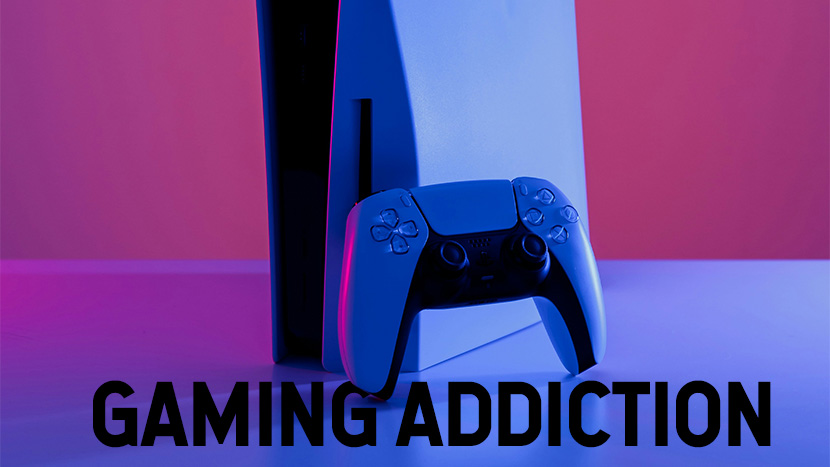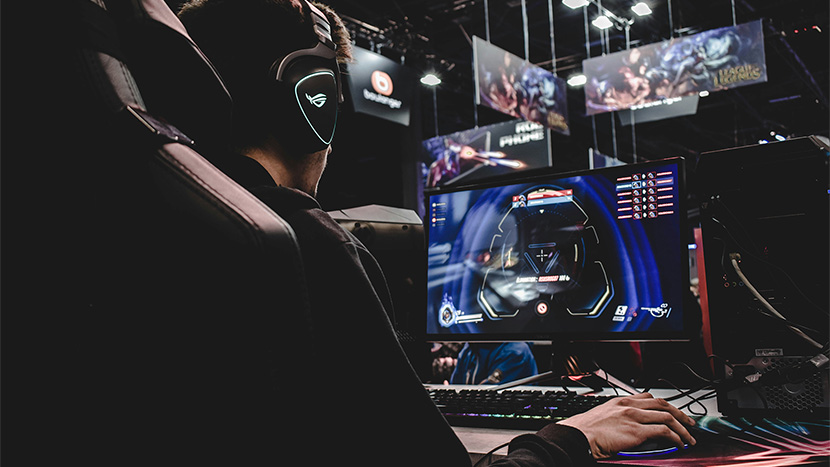Uncover the Secrets: The Science Behind Why We Get Hooked On Games
Has there been a time when while gaming you could not set down the controller or felt that so much time had passed that couldn’t believe it? If so, you’re not alone. This addiction to gaming is very real, with many individuals fixated in front of a screen saying ‘only one more level,’ but end up playing the game for several more hours. This new addiction is a widespread issue right now, so we need to find a way to enjoy our games in moderation. Games can be great and a bit of screen time is fine, whether playing RPGs on your PC or having fun on on non GamStop casinos, but gaming addiction can be both mentally and physically harmful, so it needs to be addressed.
I bet you didn’t know that playing video games is like getting your brain a direct dose of dopamine. This “happy hormone” is what gives you a sort of high and makes you continue to seek out what caused its release. In this blog post, we look at what makes games so engaging. You’ll find out about how it influences your brain and why it is so challenging to quit once you’ve started. Here are some surprising facts you’d better take a seat for!
Understanding Video Game Addiction
Many people can’t stop playing video games – but why? Let’s explore what makes these games so addictive…
Definition and Recognition as a Disorder
The World Health Organization (WHO) added “gaming disorder” to the ICD-11. This is a big deal. They say it’s a pattern of gaming that takes over your life for at least 12 months. You lose control and can’t stop playing, even when it harms you.
The DSM-5 mentions Internet Gaming Disorder, but does not officially recognize it as its own condition. Critics argue that labelling an “addiction” to gaming as a disorder could make any normal behaviour seem like a bigger problem than it is.
Furthermore, the WHO says that gaming becomes problematic when it disrupts daily life.
Next, let’s talk about symptoms that show if someone might have video game addiction…
Common Symptoms and Diagnostic Criteria
Video game addiction is real. It’s now seen as a disorder by many experts.
Common Symptoms and Diagnostic Criteria:
- Preoccupation with Games
- Always thinking about the next play or game.
- Distracted during work or school.
- Withdrawal Symptoms
- Feeling irritable or anxious when not playing.
- Signs like restlessness or mood swings.
- Tolerance Development
- Needing more playtime to feel satisfied.
- Playing longer durations than before to get the same thrill.
- Unsuccessful Attempts to Control Gaming
- Trying but failing to cut down on time spent gaming.
- Making promises to stop but continuing anyway.
- Loss of Interest in Other Activities
- Quitting hobbies and sports they once enjoyed.
- Choosing games over friends and family time.
- Continued Gaming Despite Problems
- Playing even when it causes fights at home.
- Ignoring poor grades or work issues due to gaming.
- Deceiving Others About Gaming Time
- Lying about how long you’ve been playing.
- Hiding video game sessions from loved ones.
- Using Games to Escape Negative Moods
- Gaming to avoid stress, guilt, or anxiety.
- Using it as a way to cope with bad days.
Spotting these symptoms can help manage gaming habits better…
The Psychology Behind Gaming Addiction
Video games are created to stimulate the center in our brain associated with pleasure when achieving the next level or the win. Do you ever consider why it is challenging to quit playing once you complete your objective? The secret is in understanding how games work with our brain and one of the most important substances – dopamine that tells us about pleasure and motivation.
The Role of Dopamine in Reward Systems
Dopamine is the ‘pleasure chemical’ that rises when doing something enjoyable; including eating, exercising, or playing video games. When you are playing a game, and there is something amazing, and you did a great job – whether it is completing mission, reaching a certain level or unlocking something – your brain releases dopamine. Soon this dopamine does back to normal levels and you begin craving to play the game – in a bid to feel the same. As far as the addiction to it is concerned, gamings’ dopamine rush is not as mighty as some drugs, but it is potent enough to glue gamers to screens for hours, anticipating just one more win or reward.
Another element associated with gaming depends on the mere idea that greater enjoyment arises from random rewards, which cannot be foreseen. Such stimuli appeal to the brain Imperative to gaming because our brain prefers surprises; for example, for progressing to another level, or receiving another item that is unpredictable. This is like the mechanics of slot machines, the occasional jackpot, and the hope of hitting it again, keeps people pumping money into the machine. These random, and rather infrequent rewards bring repeated rush of dopamine, thus encouraging the activity.
Psychological Needs: Competence, Autonomy, Relatedness
Games stimulate our brains by making us feel good. They meet some deep psychological needs.
- Competence
- People love feeling skilled. Games give us challenges to master.
- Just like stacking blocks, children enjoy mastering tasks.
- Winning a game makes players feel smart and capable.
- Autonomy
- Everyone desires control over their life.
- Games offer choices—like deciding which path to take next.
- Players can make decisions without real-world consequences.
- Relatedness
- Humans crave social connections.
- Online games let people interact, much like adults use social media.
- Teamwork in games helps players bond with others.
Games that fulfil these needs might reduce the risk of addiction because they balance our mental cravings… but when these needs are not met elsewhere, gaming can become a serious problem.
Effects of Video Games on the Brain
Video games can have some negative impacts on the brain, depending on which part of the brain is involved in playing video games, how often it is being used, and on the areas of impulse control and feelings. To borrow from an earlier discussion, the pre-frontal cortex region of the brain linked to decision and self control can easily be conditioned to seek quick gratification, thus leading the individual to play again.
On the other hand, the expansive quantity and quality of experiences that are found in games can also enhance and improve hippocampus and related visuospatial skills such as navigation and spatial memory. It can also help with problem solving skills and memory. However, continuous over-stimulation from gaming can result in poor attention spans for day-to-day normal tasks. There’s evidence that gamers have better info processing and hand-eye coordination but playing for long periods causes neurochemical changes tied to impulse control. Long story short, balance is key.
Changes in Brain Regions
Video games can reshape our brains. Playing them often boosts visuospatial skills. Neuroimaging shows bigger right hippocampus areas in gamers. This part of the brain helps in moving through spaces, which is especially important when playing immersive experiences like top-rated VR games.
Addiction to gaming changes brain structure, too. It activates reward pathways much like drugs do! These changes affect how we process rewards and make decisions. Brain scans reveal heightened activity in these neural pathways… just like those seen with substance use disorders.
Long-Term Cognitive and Emotional Impacts
Excessive screen time can change the brain’s structure. It impacts regions tied to memory, decision-making, and coordination. Long-term gaming boosts visual attention and short-term memory but may harm mental health and social skills.
Constant screen use may lead to issues like insomnia and obesity. Young adults’ brains are more plastic, so they adapt quickly but also risk negative changes faster. Older adults see cognitive gains yet face similar risks from too much gaming.
Next up: Strategies for Managing Gaming Addiction
Strategies for Managing Gaming Addiction
It’s crucial to spot the signs early. Set limits on gaming time, and find other fun hobbies… everyone needs a break!
Recognising Triggers
Certain things make us want to play more games. Stress, boredom, or feeling lonely can be big triggers. Imagine you’ve had a rough day at school or work. You might turn to gaming because it’s fun and makes you forget your worries for a while.
“Hunger can also play a role,” says Dr Jane Smith, an expert in child psychology. “When kids are hungry, they may get cranky and seek comfort in games.” Knowing what drives you to gaming helps manage it better.
So next time you feel the urge to game… ask yourself why!
Setting Healthy Boundaries and Alternative Activities
Setting healthy boundaries for gaming is important. It helps prevent addiction and boosts real-life engagement.
- Establish Healthy Habits Early: Start good habits from the beginning. Limit how long kids can play. This can stop problems before they start.
- Play Games with Children: Join in their gaming world. Understand what they love about it, and use this to guide them wisely.
- Limit Gaming Time: Set clear rules on when and how long games can be played. Balance this with other daily activities like homework or chores.
- Watch for Signs of Neglect: Check if gaming affects their relationships or schoolwork. If so, it’s time to cut back hours spent on screens.
- Encourage Other Activities: Suggest fun alternatives like sports or clubs. These offer a break from screens and build new skills.
- Follow Guidelines: Stick to advice from bodies like the American Academy of Pediatrics. They suggest keeping tech-free times during meals and before bed.
- Model Healthy Screen Use: Show good examples by limiting your own screen time too. Actions speak louder than words here.
- Create Tech-Free Zones: Have some places at home, like the dining room, free from gadgets to encourage talking face-to-face.
Understanding these steps can help manage gaming well…
Conclusion
Games hook us in with their thrilling challenges and rewards. Dopamine plays a big role in the addiction, making us crave more rewards that we get from gaming. When we game often, our brains change, much like they do with disorders around substances or gambling. However, recognising triggers and building rules and schedules can help manage the addiction and enjoy gaming without it become a problem. At the end of the day, balance is key to enjoying games without losing control.


































































































